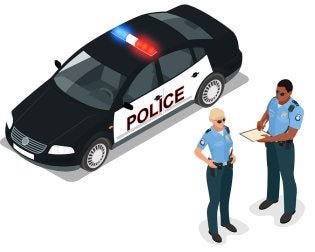-
Are You Obligated to Take a Field Sobriety Test?
If a police officer pulls you over on suspicion of traffic violations, he or she may request that you step out of the car and perform field sobriety tests. These tests include tasks such as walking heel-to-toe in a straight line. They are intended to provide further probable cause for police officers to arrest you and charge you with DUI or aggravated DUI in the Annapolis area. Unfortunately, it’s entirely possible for people who are not intoxicated to fail these tests, particularly when it’s nighttime and the individual is disoriented from having been pulled over.
As you’ll learn when you watch this video, field sobriety tests are not the same as chemical tests. Unlike chemical tests, it is not mandatory for a person to submit to field sobriety tests in Maryland. If you could be facing DUI or aggravated DUI charges, you have the right to request to be taken in for a chemical test instead. You also have the right to call a criminal lawyer if you are arrested.
Disclaimer: This article provides general information about the topics discussed and does not qualify as legal advice. Every case is different and the laws applicable to each case may differ. If you have a legal matter, you should speak to an attorney to get advice on your particular situation.
-
Dealing with Police Searches at Traffic Stops
 In most cases, when a driver is pulled over for traffic violations, he or she is given a citation or a warning and is let go without further incident. However, sometimes police officers may suspect that the driver is violating additional laws, such as those that may lead to drug charges. This may lead an officer to request a search of the vehicle . When this happens, the driver may get into further legal trouble and require the assistance of a criminal defense attorney in Annapolis.
In most cases, when a driver is pulled over for traffic violations, he or she is given a citation or a warning and is let go without further incident. However, sometimes police officers may suspect that the driver is violating additional laws, such as those that may lead to drug charges. This may lead an officer to request a search of the vehicle . When this happens, the driver may get into further legal trouble and require the assistance of a criminal defense attorney in Annapolis. You can watch this brief video for an overview on search and seizure laws. It explains Fourth Amendment rights through the eyes of Daryl, a young driver who has been pulled over for traffic violations and is asked to exit his vehicle. When he makes the mistake of leaving his car door open, the police officer asks Daryl if he has any drugs and if he minds if the officer takes a look. As soon as Daryl says “No,” he gives up his Fourth Amendment rights, even though it may not be clear to him whether he is answering the first or second question.
Disclaimer: This article provides general information about the topics discussed and does not qualify as legal advice. Every case is different and the laws applicable to each case may differ. If you have a legal matter, you should speak to an attorney to get advice on your particular situation.
-
Dealing with a Police Stop
Unfortunately, both residents and criminal lawyers near Annapolis know that being stopped by the police is no longer a rare event in Maryland. If you are stopped by a police officer on the street, you do need to provide your name and should give a form of identification if you have it on you.
To ensure your own safety and prevent being charged with a criminal offense, cooperate as much as you can. But you should also make sure to get the police officerâs name and look around to see if there are any witnesses. That way, you can call upon people later on if you need someone to corroborate your story of an illegal interrogation or unnecessary police violence. Remember to remain calm, avoid confrontation, and always keep your hands where they can be seen.
